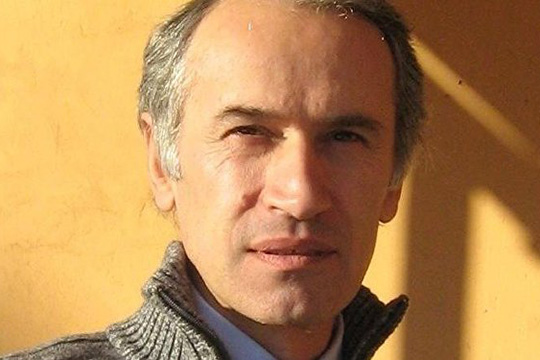1) How do you see what is going on in the post-Soviet space these days?
In the last few months, the post-Soviet space has been at the center of a series of turbulences that the main player in the area, the Russian Federation, is trying to stem and resolve at the level of diplomacy. At least two exogenous elements are inserting in these local turmoils: the renewed Turkish protagonism and the long-time US anti-Russian strategy.
2) There is a new wave of conflict in Nagorno Karabakh, that has long been frozen. Why now? Does it have anything to do with the overall worsening global situation?
The new wave of the conflict in Nagorno-Karabakh most likely exploded also following a series of initiatives taken by Turkey.
Turkey has recently supplied Azerbaijan with drones, missiles and organized joint military exercises. Furthermore, it appears that hundreds of militiamen from the Hamza division have been transferred from Syria to Azerbaijan.
To this we must also add the recent "Kavkaz 2020" (21-26 September) exercises held in the area between the Black Sea, the North Caucasus and the Caspian Sea (Southern Military District), jointly conducted by the Russian, Armenian, Belarusian, Iranian, Pakistani, Chinese and Burmese armed forces.
3) US Secretary Mike Pompeo held a meeting with both sides of that conflict. How effective that was and what the Secretary has to offer them?
Mike Pompeo's initiative is part of the traditional US strategy of insertion into critical situations that occur in the entire Eurasian landmass in order to weaken the main player in the entire area on a diplomatic, military and economic level: the Russian Federation.
Even in this case the presence of the US Secretary of State was not decisive. I think that Pompeo's initiative is a further element aimed at exacerbating the spirits of the Armenian and Azerbaijani leaderships.
4) Meanwhile Iran is gathering troops on the border with Azerbaijan. Does it mean that conflict has slipped out of control and there is a threat for the whole Middle East region security?
At the moment, there are still no elements that could cause the conflict between Azerbaijanis and Armenians to evolve into a serious threat to the entire Middle East. However, History teaches us that wars can also break out due to critical situations considered marginal.
5) What Turkey, the number one patron for Azerbaijan in the region, is going to do about this situation?
Turkey pursues its own strategy of expanding its sphere of influence. As part of this strategy, it uses two main elements of identity: Panturanism and Islam. However, Ankara, in the case of the frictions between Baku and Yerevan, will have to take Russian interests into account.
6) Post-elections unrest in Belarus also seems to be going on for months. What measures should be taken to calm it down?
As regards the situation in Belarus, it must be said that the system has failed to renew itself. This is a problem that most ex-Soviet republics run through. The renewal of leadership and the reformulation of some national strategies concerning the modernization processs are the axes on which it is possible to overcome the current crisis.
7) US State Secretary Pompeo has recently had a telephone conversation with Lukashenko of Belarus. What was it about in your opinion? Can you elaborate on what the West may gain should Lukashenko stay at power? And what if he has to go?
Paradoxically, Lukashenko, that is to say the image of the Belarusian president that is promoted by the Western media, is the person who currently suits the West. Lukashenko is portrayed as an autocrat, a dictator by the Western media. Its position is very uncertain and weak. Pompeo could leverage these elements to facilitate a kind of color revolution in Belarus.
8) Now let’s talk about another post-Soviet republic - Kyrgyzstan. As you know, there was literally a grab of power by the local opposition. What made this possible to happen?
Even in the case of Kyrgyzstan, what has been said previously applies. Here too the renewal of leadership poses problems with regard to the stability of the country.
9) Also, the country is divided between southern and northern clans - and they all have a certain influence there. Which one won in that political coup?
The situation is even more complex due to the different clans that aspire to control the country. In my opinion, the victory of one clan over another will not lead to a stabilization and governability of the country in the long run. I think the parties involved need to strike a balance in the perspective of national unity.
10) In your opinion how all these processes are going to change the political map on the continent of Eurasia?
I don't think these events will produce a general change of the Eurasian map. I assume instead that, once the pandemic wave has passed, it is precisely on the basis of these local crises that we return to reflect on the integration processes of the whole Eurasian landmass.
read more in our Telegram-channel https://t.me/The_International_Affairs

 14:30 05.11.2020 •
14:30 05.11.2020 •























